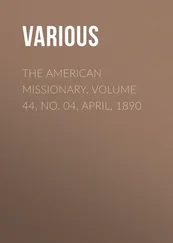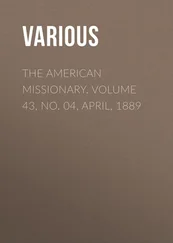Elizabeth Ellet - The Women of The American Revolution, Vol. 1
Здесь есть возможность читать онлайн «Elizabeth Ellet - The Women of The American Revolution, Vol. 1» — ознакомительный отрывок электронной книги совершенно бесплатно, а после прочтения отрывка купить полную версию. В некоторых случаях можно слушать аудио, скачать через торрент в формате fb2 и присутствует краткое содержание. Жанр: foreign_antique, foreign_prose, на английском языке. Описание произведения, (предисловие) а так же отзывы посетителей доступны на портале библиотеки ЛибКат.
- Название:The Women of The American Revolution, Vol. 1
- Автор:
- Жанр:
- Год:неизвестен
- ISBN:нет данных
- Рейтинг книги:5 / 5. Голосов: 1
-
Избранное:Добавить в избранное
- Отзывы:
-
Ваша оценка:
- 100
- 1
- 2
- 3
- 4
- 5
The Women of The American Revolution, Vol. 1: краткое содержание, описание и аннотация
Предлагаем к чтению аннотацию, описание, краткое содержание или предисловие (зависит от того, что написал сам автор книги «The Women of The American Revolution, Vol. 1»). Если вы не нашли необходимую информацию о книге — напишите в комментариях, мы постараемся отыскать её.
The Women of The American Revolution, Vol. 1 — читать онлайн ознакомительный отрывок
Ниже представлен текст книги, разбитый по страницам. Система сохранения места последней прочитанной страницы, позволяет с удобством читать онлайн бесплатно книгу «The Women of The American Revolution, Vol. 1», без необходимости каждый раз заново искать на чём Вы остановились. Поставьте закладку, и сможете в любой момент перейти на страницу, на которой закончили чтение.
Интервал:
Закладка:
To this picture may be added another:
"The Marquis de La Fayette repaired to Fredericksburg, previous to his departure for Europe, in the fall of 1784, to pay his parting respects to the mother, and to ask her blessing. Conducted by one of her grandsons, he approached the house, when the young gentleman observed: 'There, sir, is my grandmother.' La Fayette beheld – working in the garden, clad in domestic-made clothes, and her grey head covered with a plain straw hat – the mother of 'his hero, his friend and a country's preserver!' The lady saluted him kindly, observing, 'Ah, marquis! you see an old woman; but come, I can make you welcome to my poor dwelling, without the parade of changing my dress.'"
To the encomiums lavished by the marquis on his chief, the mother replied: "Iam not surprised at what George has done, for he was always a very good boy." So simple in her true greatness of soul, was this remarkable woman.
Her piety was ardent; and she associated devotion with the grand and beautiful in nature. She was in the habit of repairing every day for prayer to a secluded spot, formed by rocks and trees, near her dwelling.
After the organization of the government, Washington repaired to Fredericksburg, to announce to his mother his election to the chief magistracy, and bid her farewell, before assuming the duties of his office. Her aged frame was bowed down by disease; and she felt that they were parting to meet no more in this world. But she bade him go, with heaven's blessing and her own, to fulfil the high destinies to which he had been called. Washington was deeply affected, and wept at the parting.
The person of Mrs. Washington is described as being of the medium height, and well proportioned – her features pleasing, though strongly marked. There were few painters in the colonies in those days, and no portrait of her is in existence. Her biographer saw her but with infant eyes; but well remembers the sister of the chief. Of her we are told nothing, except that "she was a most majestic woman, and so strikingly like the brother, that it was a matter of frolic to throw a cloak around her, and place a military hat upon her head; and such was the perfect resemblance, that had she appeared on her brother's steed, battalions would have presented arms, and senates risen to do homage to the chief."
Mrs. Washington died at the age of eighty-five, rejoicing in the consciousness of a life well spent, and the hope of a blessed immortality. Her ashes repose at Fredericksburg, where a splendid monument has been erected to her memory.
II. ESTHER REED
Esther De Berdt was born in the city of London, on the 22d of October, 1746, (N. S.,) and died at Philadelphia on the 18th of September, 1780. Her thirty-four years of life were adorned by no adventurous heroism; but were thickly studded with the brighter beauties of feminine endurance, uncomplaining self-sacrifice, and familiar virtue – under trials, too, of which civil war is so fruitful. She was an only daughter. Her father, Dennis De Berdt, was a British merchant, largely interested in colonial trade. He was a man of high character. Descended from the Huguenots, or French Flemings, who came to England on the revocation of the Edict of Nantes, Mr. De Berdt's pure and rather austere religious sentiments and practice were worthy of the source whence they came. His family were educated according to the strictest rule of the evangelical piety of their day – the day when devotion, frozen out of high places, found refuge in humble dissenting chapels – the day of Wesley and of Whitfield. Miss De Berdt's youth was trained religiously; and she was to the end of life true to the principles of her education. The simple devotion she had learned from an aged father's lips, alleviated the trials of youth, and brightened around her early grave.
Mr. De Berdt's house in London, owing to his business relations with the Colonies, was the home of many young Americans who at that time were attracted by pleasure or duty to the imperial metropolis. Among these visitors, in or about the year 1763, was Joseph Reed, of New Jersey, who had come to London to finish his professional studies (such being the fashion of the times) at the Temple. Mr. Reed was in the twenty-third year of his age – a man of education, intelligence, and accomplishment. The intimacy, thus accidentally begun, soon produced its natural fruits; and an engagement, at first secret, and afterwards avowed, was formed between the young English girl and the American stranger. Parental discouragement, so wise that even youthful impetuosity could find no fault with it, was entirely inadequate to break a connection thus formed. They loved long and faithfully – how faithfully, the reader will best judge when he learns that a separation of five years of deferred hope, with the Atlantic between them, never gave rise to a wandering wish, or hope, or thought.
Mr. Reed, having finished his studies, returned to America, in the early part of 1765, and began the practice of the law in his native village of Trenton. His success was immediate and great. But there was a distracting element at work in his heart, which prevented him from looking on success with complacency; and one plan after another was suggested, by which he might be enabled to return and settle in Great Britain. That his young and gentle mistress should follow him to America, was a vision too wild even for a sanguine lover. Every hope was directed back to England; and the correspondence, the love letters of five long years, are filled with plans by which these cherished, but delusive wishes were to be consummated. How dimly was the future seen!
Miss De Berdt's engagement with her American lover, was coincident with that dreary period of British history, when a monarch and his ministers were laboring hard to tear from its socket, and cast away for ever, the brightest jewel of the imperial crown – American colonial power. It was the interval when Chatham's voice was powerless to arouse the Nation, and make Parliament pause – when penny-wise politicians, in the happy phrase of the day, " teased America into resistance ;" and the varied vexations of stamp acts, and revenue bills, and tea duties, the congenial fruits of poor statesmanship, were the means by which a great catastrophe was hurried onward. Mr. De Berdt's relations with the Government were, in some respects, direct and intimate. His house was a place of counsel for those who sought, by moderate and constitutional means, to stay the hand of misgovernment and oppression. He was the Agent of the Stamp Act Congress first, and of the Colonies of Delaware and Massachusetts, afterwards. And most gallantly did the brave old man discharge the duty which his American constituents confided to him. His heart was in his trust; and we may well imagine the alternations of feeling which throbbed in the bosom of his daughter, as she shared in the consultations of this almost American household; and according to the fitful changes of time and opinion, counted the chances of discord that might be fatal to her peace, or of honorable pacification which should bring her lover home to her. Miss De Berdt's letters, now in the possession of her descendants, are full of allusions to this varying state of things, and are remarkable for the sagacious good sense which they develope. She is, from first to last, a stout American. Describing a visit to the House of Commons, in April, 1766, her enthusiasm for Mr. Pitt is unbounded, while she does not disguise her repugnance to George Grenville and Wedderburn, whom she says she cannot bear, because " they are such enemies to America ." So it is throughout, in every line she writes, in every word she utters; and thus was she, unconsciously, receiving that training which in the end was to fit her for an American patriot's wife.
Читать дальшеИнтервал:
Закладка:
Похожие книги на «The Women of The American Revolution, Vol. 1»
Представляем Вашему вниманию похожие книги на «The Women of The American Revolution, Vol. 1» списком для выбора. Мы отобрали схожую по названию и смыслу литературу в надежде предоставить читателям больше вариантов отыскать новые, интересные, ещё непрочитанные произведения.
Обсуждение, отзывы о книге «The Women of The American Revolution, Vol. 1» и просто собственные мнения читателей. Оставьте ваши комментарии, напишите, что Вы думаете о произведении, его смысле или главных героях. Укажите что конкретно понравилось, а что нет, и почему Вы так считаете.












